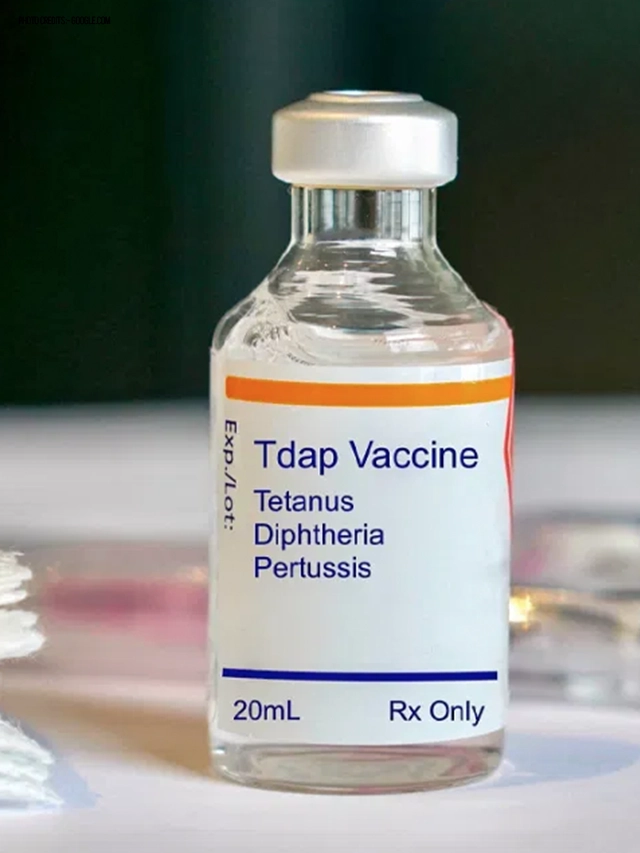
HEALTH BLOG
What is Tdap Vaccine: A Crucial Shot for Lifelong Protection
-
Rahul Priydarss
The Tdap vaccine is a vital immunization that protects against tetanus, diphtheria, and pertussis (whooping cough). Recommended for adolescents, adults, pregnant women, and caregivers of newborns, it helps prevent serious illness and reduces the spread of these dangerous diseases. If you’re wondering “What is Tdap vaccine?”, it’s a booster shot given to ensure long-lasting immunity, especially important for those in close contact with infants. Safe and effective, the Tdap vaccine offers critical protection and should be part of everyone’s routine healthcare. Stay informed and speak with your healthcare provider about your vaccination schedule.
Introduction to Tdap Vaccine:
The Tdap vaccine is an important immunization that helps protect against three serious bacterial infections: tetanus, diphtheria, and pertussis (commonly known as whooping cough). It is designed to provide long-lasting protection and is recommended for adolescents, adults, and especially pregnant women to help protect vulnerable newborns. This comprehensive guide will explain everything you need to know about the Tdap vaccine, including how it works, who should get it, and why it’s essential for public health.
Vaccination plays a crucial role in maintaining public health. Vaccines not only protect individuals but also contribute to herd immunity, a concept that helps safeguard the most vulnerable members of society, such as babies and individuals with weakened immune systems. The Tdap vaccine is a key part of this process, offering protection against three dangerous infections. These diseases can lead to serious complications, hospitalization, or even death if not properly managed, making the Tdap vaccine an essential part of modern healthcare.
In this guide, we will break down what the Tdap vaccine is, how it works, who should receive it, and its overall significance. We’ll also address common questions about side effects, safety, and the difference between Tdap and other vaccines like DTaP.

Table of Contents
What is Tdap Vaccine:
The Tdap vaccine protects against three bacterial infections: tetanus, diphtheria, and pertussis (whooping cough). It is a combination vaccine, meaning it contains components that protect against multiple diseases in a single shot. The Tdap vaccine is primarily given as a booster, which means it helps maintain immunity after the initial childhood vaccinations.
- Tetanus, also called “lockjaw,” is a bacterial infection that causes painful muscle stiffness and can lead to difficulty breathing or swallowing. It is commonly contracted through cuts or wounds that become infected with the bacteria.
- Diphtheria is a respiratory infection that can cause severe breathing problems, heart failure, and paralysis. It spreads through respiratory droplets when an infected person coughs or sneezes.
- Pertussis, or whooping cough, is a highly contagious respiratory infection that causes severe coughing fits. It can be especially dangerous for infants and young children, who are more vulnerable to complications like pneumonia.
These three diseases are rare in countries with widespread vaccination, but they still pose a risk, particularly for those who are unvaccinated. The Tdap vaccine helps ensure that immunity to these diseases remains strong throughout adolescence and adulthood.
Why is the Tdap Vaccine Important:
The importance of the Tdap vaccine cannot be overstated. It provides long-term protection against diseases that can lead to severe complications. While many people may associate vaccines with childhood, maintaining immunity through adolescence and adulthood is crucial. This is because immunity can wane over time, meaning that the protection you received from vaccines as a child may not be as strong as you grow older.
For example, while tetanus is not contagious (since it is contracted through wounds), both diphtheria and pertussis are highly contagious. Pertussis is particularly dangerous for newborns, as they cannot receive their own vaccines until they are a few months old. By getting vaccinated, adults and adolescents help create a protective bubble around infants, reducing the risk of transmission.
For pregnant women, the Tdap vaccine is especially important. During pregnancy, getting the Tdap vaccine helps transfer antibodies to the unborn baby, giving them passive immunity that can protect them during their first few months of life when they are most vulnerable to infections like whooping cough. This is why doctors recommend that pregnant women receive the Tdap vaccine during every pregnancy, regardless of whether they have been vaccinated before.
Who Should Get the Tdap Vaccine:
The Tdap vaccine is recommended for several groups, including.
- Adolescents: The Tdap vaccine is usually given as a booster shot around the age of 11 or 12. This is because the immunity from the earlier childhood vaccines (which include DTaP) begins to wane, and a booster is needed to maintain protection.
- Adults: Adults who did not receive the Tdap vaccine as adolescents should receive one dose to protect themselves and others, especially if they are around newborns or young children.
- Pregnant Women: As mentioned earlier, pregnant women should receive the Tdap vaccine during every pregnancy, preferably between 27 and 36 weeks of gestation. This helps protect the baby during the critical early months of life.
- Caregivers and Family Members: Anyone who is in close contact with newborns, including caregivers, grandparents, and other family members, should be up-to-date with their Tdap vaccination. This reduces the risk of passing pertussis to a baby who is too young to be vaccinated.
- Healthcare Workers: Healthcare workers who have direct contact with patients should ensure they are up to date with their Tdap vaccine, as they are at a higher risk of coming into contact with infected individuals.

How Does the Tdap Vaccine Work:
The Tdap vaccine works by stimulating the immune system to produce antibodies that can fight off tetanus, diphtheria, and pertussis if the person is exposed to these bacteria. The vaccine contains inactivated forms of the toxins produced by these bacteria. This means the vaccine cannot cause the diseases but can trigger an immune response.
After receiving the vaccine, the body takes a few weeks to develop full immunity. These antibodies help protect the body against infection, and the immune system will “remember” how to fight the bacteria if exposed in the future. However, immunity can decrease over time, particularly for pertussis, which is why booster shots are necessary.
For pregnant women, the antibodies generated by the vaccine are passed to the baby through the placenta, giving the infant some protection after birth. This is crucial since babies cannot receive their own pertussis vaccine until they are around two months old.
How Often Do You Need a Tdap Vaccine:
Most people will need only one dose of Tdap in their lifetime. After that, it is recommended to receive a tetanus and diphtheria (Td) booster every 10 years. The Tdap vaccine can be given instead of Td if there is a need for renewed protection against pertussis, especially for adults who will be around infants or young children.
For pregnant women, the recommendation is to receive the Tdap vaccine during every pregnancy, even if the woman has had a Tdap shot recently. This is because the antibodies passed to the baby during each pregnancy will provide essential protection for the newborn.
Tdap vs. DTaP: What is the Difference:
A common point of confusion is the difference between the Tdap and DTaP vaccines. While both protect against the same three diseases—tetanus, diphtheria, and pertussis—they are given at different stages of life.
- DTaP is a vaccine that is given to infants and young children. The “D” and “P” in DTaP refer to higher doses of the diphtheria and pertussis components, which are appropriate for younger children.
- Tdap is a booster shot given to adolescents and adults. It contains smaller amounts of the diphtheria and pertussis components, as adolescents and adults require lower doses to maintain immunity.
What Are the Side Effects of the Tdap Vaccine:
Like all vaccines, the Tdap vaccine can cause side effects, but most of these are mild and temporary. The most common side effects include.
- Pain, redness, or swelling at the injection site: This is the most frequent side effect and typically goes away within a few days.
- Mild fever: Some people may experience a low-grade fever after getting the vaccine.
- Headache, tiredness, or body aches: These flu-like symptoms are usually mild and resolve quickly.
More serious side effects are rare but can include severe allergic reactions (anaphylaxis). Symptoms of an allergic reaction may include difficulty breathing, swelling of the face or throat, or a fast heartbeat. If any of these symptoms occur, seek medical attention immediately.
It’s important to remember that the benefits of the Tdap vaccine far outweigh the risks of these side effects. The diseases it protects against—tetanus, diphtheria, and pertussis—can lead to serious complications or death, especially in infants and young children.
Is the Tdap Vaccine Safe:
The Tdap vaccine is considered safe and effective. It has been thoroughly tested in clinical trials and monitored for safety since it was introduced. Millions of doses have been administered worldwide, and serious side effects are extremely rare.
Pregnant women, in particular, may wonder whether the Tdap vaccine is safe for them and their babies. Numerous studies have shown that the vaccine is safe for both mother and baby, and it significantly reduces the risk of pertussis in newborns.
In addition to its safety, the Tdap vaccine is recommended by leading health organizations, including the Centers for Disease Control and Prevention (CDC), the American College of Obstetricians and Gynecologists (ACOG), and the World Health Organization (WHO).
How Effective is the Tdap Vaccine:
The Tdap vaccine is highly effective at preventing tetanus, diphtheria, and pertussis. Studies show that.
- The vaccine provides nearly 100% protection against tetanus.
- It offers about 95% protection against diphtheria.
- For pertussis, the vaccine is about 85% effective at preventing severe illness, though immunity to pertussis can decrease over time.
While no vaccine offers 100% protection, the Tdap vaccine significantly reduces the severity of illness in those who do contract one of these diseases. For example, people who have been vaccinated and still get pertussis tend to have milder symptoms and recover faster than those who are unvaccinated.
FAQs about What is Tdap Vaccine:
A1: The Tdap vaccine protects against tetanus, diphtheria, and pertussis (whooping cough) in adolescents and adults. It’s given as a booster to maintain immunity.
A2: The Tdap vaccine is recommended for adolescents, adults who haven’t had it, pregnant women during each pregnancy, and anyone in close contact with newborns.
A3: Most people need the Tdap vaccine once, followed by a tetanus and diphtheria (Td) booster every 10 years. Pregnant women should receive it during each pregnancy.
A4: Yes, the Tdap vaccine is safe and widely recommended by health organizations like the CDC and WHO. Serious side effects are very rare.
A5: Common side effects include pain or swelling at the injection site, mild fever, and body aches, which usually go away quickly.

-Please remember, to always consult with healthcare professionals or Doctors for personalised advice related to medical conditions.
Conclusion:
The Tdap vaccine is a crucial part of maintaining public health. By providing protection against tetanus, diphtheria, and pertussis, it helps safeguard individuals and communities from potentially life-threatening diseases. Whether you’re an adolescent, adult, or expecting a baby, getting the Tdap vaccine is an important step in protecting yourself and those around you. Pregnant women, in particular, play a critical role in protecting their newborns from pertussis by getting vaccinated during each pregnancy. Additionally, caregivers, family members, and healthcare workers should ensure they are up to date on their Tdap vaccination to help reduce the spread of these diseases.




